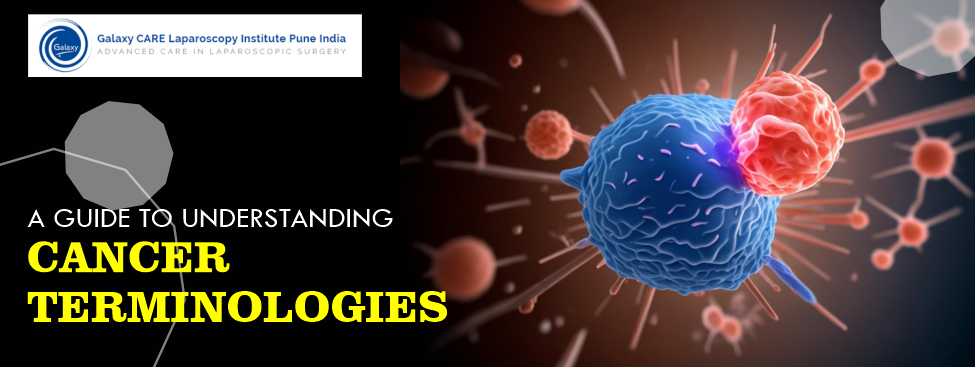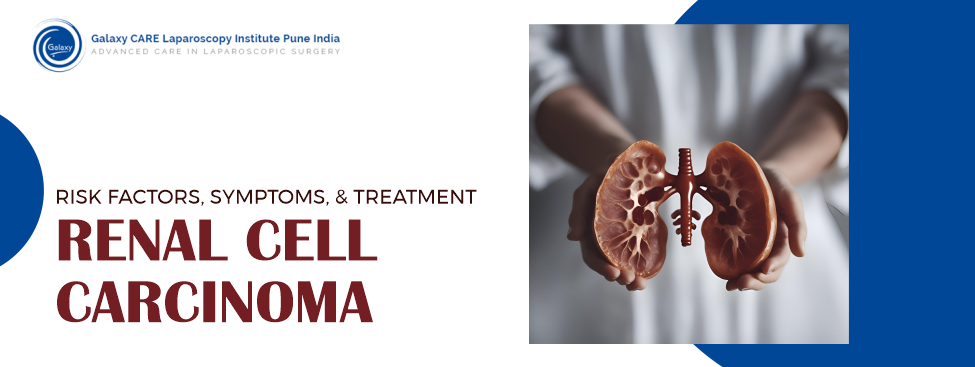
A GUIDE TO UNDERSTANDING CANCER TERMINOLOGIES
Cancer, a disease that affects millions of lives worldwide, can be a complex and overwhelming topic. Not only does it have a significant impact on the individuals diagnosed, but it also affects their families and loved ones. To navigate this landscape, the patient and their relatives must understand the various terminologies associated with cancer.
At Galaxy Care Hospital, the Best Cancer Hospital in Pune, we empathize with the challenge of understanding cancer terminologies. That’s why we’re here to simplify the complex, empowering you with knowledge. Let us guide you through the intricacies of cancer, ensuring you make informed decisions about your health. Let’s begin!
10 Cancer Terminologies You Should Understand
1. Tumor:
A tumor refers to an abnormal mass of cells that can develop in any part of the body. However, it’s important to note that not all tumors are cancerous. There are two types of tumors: benign tumors, which are non-cancerous and usually not life-threatening, and malignant tumors, which are cancerous and have the potential to spread to other parts of the body. If you or your loved one has developed a tumor in the body, it is best to timely consult the Best Oncologist in Pune.
2. Metastasis
Metastasis occurs when cancer cells from the primary tumor spread to other parts of the body through the bloodstream or lymphatic system. This process often leads to the formation of secondary tumors in distant organs, making cancer more difficult to treat.
3. Carcinoma
Carcinoma is a type of cancer that originates in the epithelial cells, which form the lining of organs and tissues in the body. It is the most common type of cancer, accounting for the majority of cases, and can affect various organs, including the breast, lung, prostate, and colon.
4. Sarcoma
Unlike carcinoma, sarcoma is a type of cancer that arises in the connective tissues, such as bones, muscles, and cartilage. Although sarcomas are relatively rare, they can be highly aggressive and require specialised treatment approaches.
5. Chemotherapy
Chemotherapy is a systemic treatment that uses drugs to destroy or inhibit the growth of cancer cells. It is often administered intravenously or in the form of pills. Chemotherapy may be used as the primary treatment or in combination with other therapies, such as surgery or radiation.
6. Radiation Therapy
Radiation therapy, also known as radiotherapy, involves the use of high-energy rays to kill cancer cells or prevent their growth. It is a localized treatment that targets specific areas affected by cancer, minimizing damage to healthy tissues. Radiation therapy can be used as the primary treatment or in combination with other modalities.
7. Biopsy
A biopsy is a procedure in which a small sample of tissue or cells is collected from a suspicious area for examination under a microscope. This diagnostic test helps determine whether the tissue is cancerous or benign, aiding in the accurate diagnosis and subsequent treatment planning.
8. Palliative Care
Palliative care focuses on providing relief from the symptoms and suffering associated with cancer, rather than aiming for a cure. It encompasses various supportive measures, including pain management, psychological support, and assistance with daily activities, enhancing the overall quality of life for patients.
9. Remission
Remission refers to a state in which the signs and symptoms of cancer disappear, either partially or completely. It does not necessarily mean that the cancer has been cured, but rather that the disease is under control. Remission can be temporary or long-lasting, depending on the type and stage of cancer.
10. Survivorship
Survivorship denotes the phase of life after cancer treatment, which may last for years or even a lifetime. It focuses on the physical, emotional, and social aspects of recovery, addressing the challenges faced by individuals who have completed their active treatment.
Conclusion
Understanding the terminologies associated with cancer is crucial for everyone to comprehend the disease, its treatment options, and its impact on patients and families. At Galaxy Care Hospital, we pride ourselves on being the leading Cancer Hospital in Pune. Our expert team of oncologists, state-of-the-art facilities, and advanced treatment options make us the preferred choice for cancer care. With a patient-centric approach, we provide personalized treatment plans tailored to each individual’s needs. Our comprehensive range of services includes diagnosis, surgery, chemotherapy, radiation therapy, and supportive care. We are committed to delivering excellence in cancer care, ensuring the highest standards of medical expertise, compassion, and support for our patients and their families.
Trust Galaxy Care Hospital for world-class cancer treatment. Your journey to recovery begins here! Book your appointment today!


